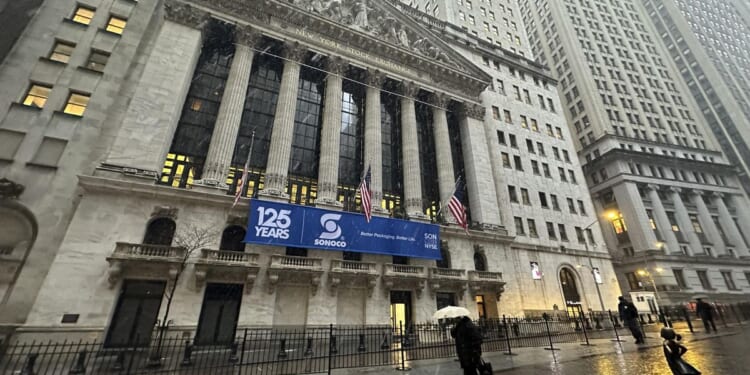
On Thursday, two of the world’s largest financial institutions are cutting ties with Climate Action 100+, delivering the latest setback for the globe’s biggest coalition of investors seeking to pressure corporations to ditch fossil fuel investments.
The asset management arms of JPMorgan Chase and State Street dropped out of Climate Action 100+, home to more than 700 investment firms totaling $68 trillion in assets under management.
The withdrawal comes after the coalition revealed plans last year to hold its members more accountable for going green by urging the disclosure of more investment decision details.
State Street cited those changes in its decision, saying it jeopardized the company’s independence. Climate Action 100+ officials have said the disclosure standards are needed to chart a better course for corporations to reach net-zero emission portfolios by 2050.
“After careful review, State Street Global Advisors has concluded the enhanced Climate Action 100+ Phase 2 requirements for signatories will not be consistent with our independent approach to proxy voting and portfolio company engagement,” said State Street spokesman Randall Jensen. “As a result, we have decided to withdraw from Climate Action 100+.”
JPMorgan Chase suggested that its in-house climate-conscious investing guidelines — environmental, social and corporate governance, or ESG investing — already went beyond the Climate Action 100+ goals.
“The firm has built a team of 40 dedicated sustainable investing professionals, including investment stewardship specialists who also leverage one of the largest buy-side research teams in the industry,” the company said.
Climate Action 100+ did not respond to a request for comment.
Financial institutions have faced increasing pressure from elected Republicans to distance themselves from the ESG approach, which conservatives assail as “woke capitalism.”
ESG opponents celebrated the move by State Street and JPMorgan.
House Judiciary Committee Chairman Jim Jordan, Ohio Republican, said the decisions are “big wins for freedom and the American economy” and urged other financial institutions to abandon “collusive ESG actions.”
He and other Republicans, especially those from energy-rich states, have accused some finance firms and investment banks of violating antitrust laws by coordinating with climate investor groups to cut investments with high carbon footprints, including fossil fuels, from their portfolios.
“These firms have taken an important step in leaving Climate Action 100+, but still have a lot of work to do to regain people’s trust as a fiduciary focused on financial return,” said Derek Kreifels, CEO of the State Financial Officers Foundation.
JPMorgan and State Street remain members of U.N.-backed ESG groups that push the global financial sector to promote green energy, including the Glasgow Financial Alliance for Net Zero, the Net Zero Banking Alliance and the Net Zero Asset Managers Initiative.
“Their continued membership in other groups, like the Net Zero Banking Alliance and Net Zero Asset Managers Initiative, calls into question whether today’s announcement reflects a real shift,” Mr. Kreifels added.
Still, such climate investor coalitions have suffered high-profile exits in recent years. Last year, several multinational insurance companies left the Net Zero Insurance Alliance and mutual fund giant Vanguard quit the Net Zero Asset Managers Initiative.
Climate Action 100+, founded in 2017, has seen at least 13 other firms leave in recent years, but a spokesperson told the Reuters news agency some 60 firms joined last fall.












